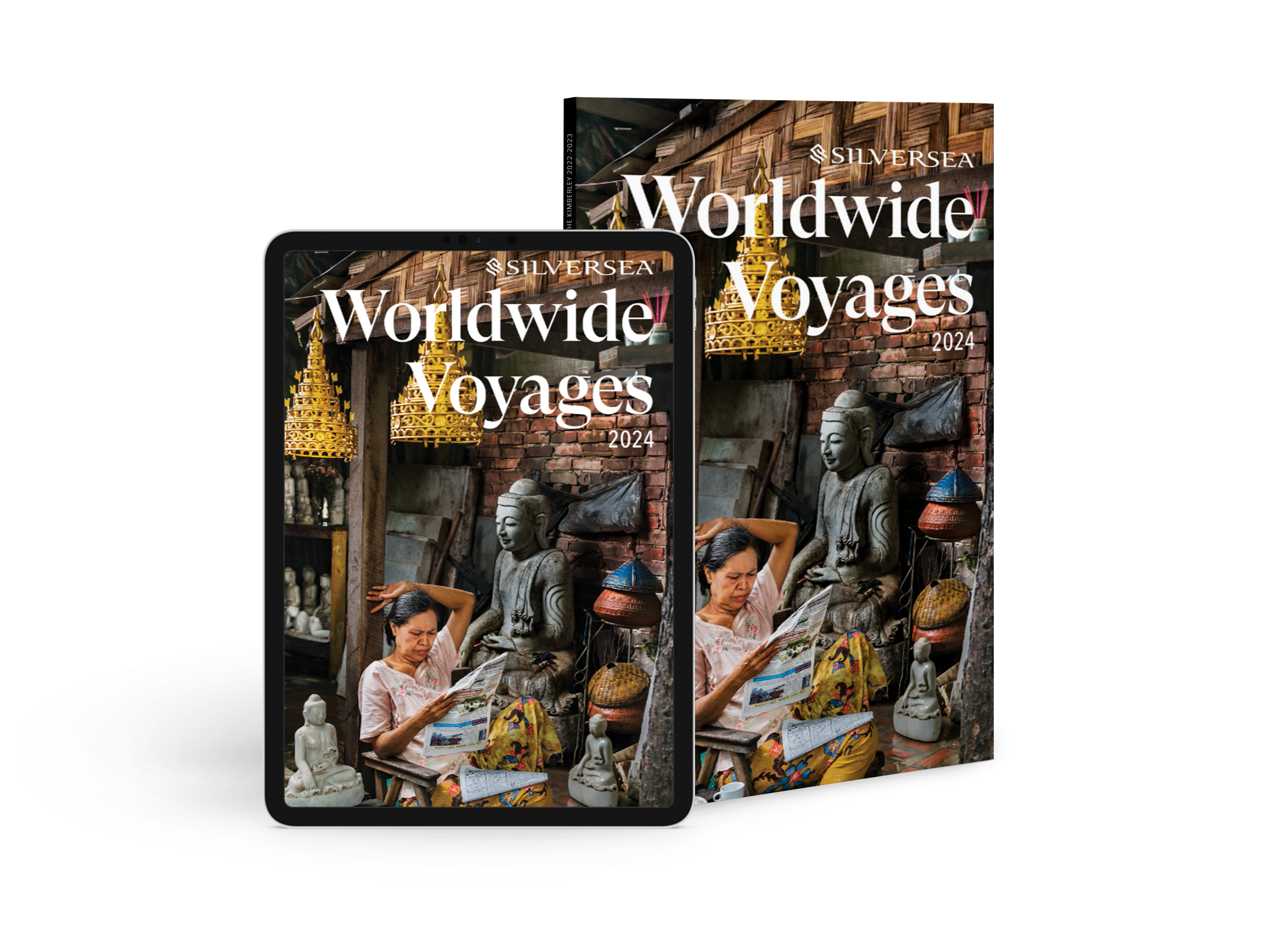Übersee
Die Vorzüge einer Kreuzfahrt
FINDEN SIE IHRE KREUZFAHRT
Übersee träume
Ein Hoch auf das Meer! Begeben Sie sich auf eine gemütliche Reise, die mehr bietet als eine Strecke über mehrere Zeitzonen. Geniessen Sie die familiäre Atmosphäre an Bord unserer preisgekrönten Schiffe, schwelgen Sie in höchstem Luxus und lassen Sie sich vom Silversea-Komfort verwöhnen. Diese transozeanischen Luxuskreuzfahrten ohne Unterbrechungen sind vielleicht das bestgehütetste Geheimnis der Kreuzfahrtbranche.
Geniessen Sie, erholen Sie sich und schwelgen Sie in der bezaubernden Welt zeitloser Reisen. Sie wünschten, Sie würden niemals ankommen.
-
-
-
-
-
-
-
-
-
-
-
-
-
-
-
-
-
-
-
-
-
-
-
-
-
-
-
-
-
-
-
-
-
-
-
-
-
-
-
-
-
-
-
-
-
-
-
-
BROSCHÜREN

Eine Kostenlose Broschüre Anfordern
UNSERE SCHIFFE IN DER
Silver Cloud
Mit 20 brandneuen Zodiacs, vier superlativen Restaurants und einer Expeditionsroute von Pol zu Pol bricht die Silver Cloud wirklich das Eis zwischen Expedition und Luxus.
- besatzung an bord212
- Gästekapazität254
- Suiten127
- speisemöglichkeiten4
- Dolce Vita
- Zagara Beauty Salon
- Pool Deck
- Rezeption
- Fitnesscenter
- Connoisseur’s Corner
- Observation lounge
- Boutique
- Explorer Lounge
- Panorama Lounge
- Zagara Beauty Spa
- Fotostudio
Silver Dawn
Eine neue Morgendämmerung zieht herauf! Unser zehntes Luxusschiff wurde im April 2022 in unsere Flotte aufgenommen und wird auf weltweiten Reiserouten eingesetzt, die authentische und intensive Erlebnisse versprechen.
- besatzung an bord411
- Gästekapazität596
- Suiten298
- speisemöglichkeiten8
- S.A.L.T. Bar
- S.A.L.T. Lab
- Panorama Lounge
- Casino
- Dolce Vita
- Fitnesszentrum
- Otium Spa
- Observation Library
- Connoisseur’s Corner
- Arts Café
- Pool-Deck und Whirlpool-Bereich
- Boutique
- Otium Beauty Salon
- Venetian Lounge